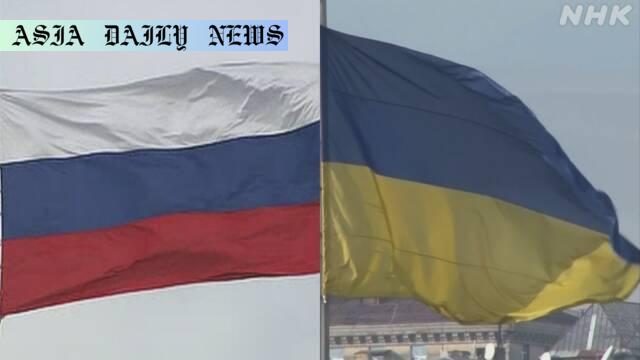Prisoner Swap: Russia and Ukraine confirm receipt of lists for a major POW exchange involving 1,000 prisoners from each side.
Russia and Ukraine received lists for a 1,000 POWs exchange agreement.
The exchange was agreed upon during high-level talks in Turkey.
Ukrainian President Zelenskyy calls for global pressure on Russia for peace.

High-Level Discussions in Istanbul Lead to Landmark Agreement
Amidst the backdrop of a continuing conflict, both Russia and Ukraine have acknowledged the receipt of lists entailing the exchange of 1,000 prisoners of war (POWs) each. This agreement emanates from high-level negotiations held in Istanbul, Turkey, on May 16, marking a significant, albeit limited, step toward reconciliation. The release of POWs from both sides signals a potential thaw in relations, highlighting that collaboration is possible even amidst discord.
Kremlin spokesperson Dmitry Peskov and Ukrainian President Volodymyr Zelenskyy jointly announced the progress. Zelenskyy, while emphasizing the importance of the deal, referred to it as the “only tangible result” of the Istanbul meeting. Both countries’ decisions to exchange lists for such a large-scale prisoner swap underscore a readiness to follow through on their commitments, showcasing that some humanitarian issues can outweigh political disputes.
Ukraine’s Relentless Push for POW Releases
President Zelenskyy has reiterated that prioritizing the return of Ukrainian soldiers held in Russian captivity remains one of Ukraine’s core objectives. The emotional and societal impact of such exchanges cannot be overstated, as these POWs are viewed as heroes who have endured immense hardship. Their return symbolizes hope and unity for a nation under siege.
During his statement, Zelenskyy specifically highlighted global involvement, urging international actors to maintain pressure on Russia. While the recent discussions in Turkey yielded this key outcome, Zelenskyy remains firmly focused on the broader and more complex issue of securing a comprehensive ceasefire. Ukraine’s leadership understands that while the immediate swap is critical for boosting morale and maintaining public support, broader peace initiatives are necessary to ensure long-term stability in the region.
Possible Talks in the Vatican: What Lies Ahead?
Looking to the future, the Wall Street Journal has reported that the next round of negotiations between the two nations could take place in mid-June, potentially hosted by the Vatican. This venue, symbolic of peace and reconciliation, adds a layer of hope and legitimacy to ongoing efforts. These talks promise to be a platform for broader discussions, possibly addressing issues like ceasefire agreements or humanitarian aid corridors.
Although the current prisoner swap agreement represents progress, both Ukraine and Russia face the daunting task of navigating deeply entrenched grievances. Trust-building measures like POW exchanges are crucial, but they are only stepping stones in a more complex journey toward comprehensive peace. The international community will undoubtedly watch closely as these exchanges unfold, hoping that they signify a shift towards de-escalation and dialogue.



Commentary
The Significance of the Prisoner Swap Agreement
The announcement of a prisoner swap involving 1,000 POWs each from Russia and Ukraine is a development that deserves close attention. In an environment dominated by hostility and distrust, this agreement stands out as a rare, constructive step forward. It signals that even amidst widespread violence and animosities, some degree of negotiation and collaboration is possible. This outcome reminds us that humanitarian concerns can sometimes overcome even the deepest divides.
The Role of Leadership and International Pressure
President Zelenskyy’s persistence in demanding global pressure on Russia cannot be understated. His approach emphasizes that international involvement is crucial for keeping larger issues, like ceasefires and humanitarian relief, on the agenda. This prisoner swap is likely an indicator of what persistent diplomacy and external influence can achieve, and it offers a model for resolving other disputes. That said, challenges to achieving such agreements will only grow more complex if efforts for immediate actions, like this exchange, are not supported by long-term strategies.
Potential for Future Talks and Building Trust
The possibility of hosting future talks in the Vatican adds an optimistic note to the unfolding narrative. Symbolic venues are critical for fostering an environment conducive to peace, and they can inspire negotiators to adopt a more conciliatory tone. However, transforming this prisoner swap into a broader peace initiative will require unwavering commitment from both sides, as well as robust support from the global community.
While this step forward is commendable, it also serves as a stark reminder of how far there is still to go. True peace will necessitate addressing core grievances, rebuilding trust, and ensuring accountability for actions during the conflict. The world will be watching closely, rooting for progress as these nations navigate this fraught yet hopeful path.